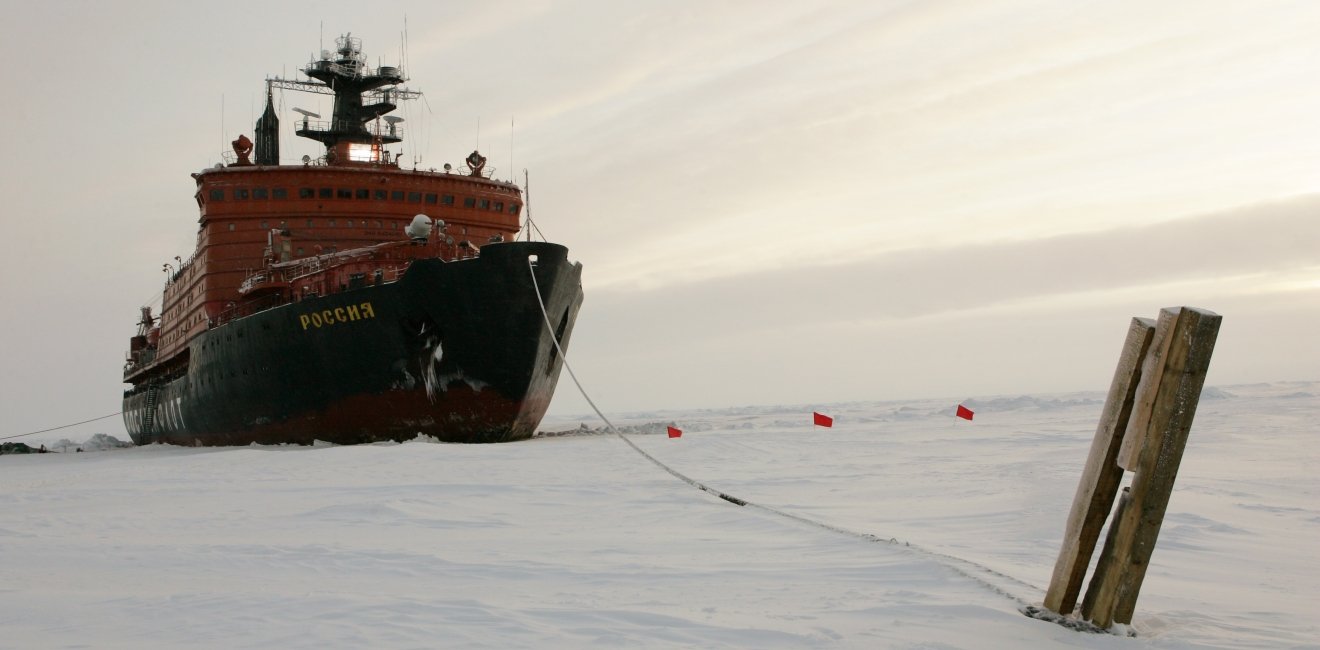On December 19, the US Department of State released the “Announcement of US Extended Continental Shelf Outer Limits”, which has extended the outer limits of the US continental shelf in the Arctic by approximately one million square kilometers. According to the document, this fully complies with the 1982 United Nations Convention on the Law of the Sea (UNCLOS), and the Scientific and Technical Guidelines of the Commission on the Limits of the Continental Shelf. Construed by Russia as “anti-Russian provocation” this will further increase tensions in the Arctic region, a strategically important macro-region which used to enjoy a status of “conflict free zone” and is now becoming an arena of unravelling geopolitical tensions.
The main issue this piece is seeking to address is: what would be the likeliest and the most realistic response of the Russian side and what should the US and its Arctic allies expect next?
What are the stakes for Russia?
On December 11, speaking at the convention for the development of key residential areas in the Arctic region, Vladimir Putin explicitly stated that the “development of the Arctic is an undisputed priority for the Russian Federation” due to its colossal geo-economic potential as well as a factor of Russia's national security and defence.
In my view, however, for Russia the value of the Arctic region well exceeds geo-economic interests and rather illusory security concerns. In the light of Russia's post-2014 transformation translated into re-emerging neo-imperial expansionism, it is clear that the Arctic has transformed into a fundamental pillar of Russia's statehood and national identity. At this juncture it is worth remembering that in 2015—after Kremlin's neo-colonial territorial grab in Ukraine and initiation of the new chapter of “adventures” on the Middle East—Russia officially stepped forward with a territorial claim in the Arctic, giving a new breath to the idea of “Arctic exceptionalism”.
Thus, one might theorize that prospective geopolitical defeat(s) in the Arctic—in addition to overall humiliating course of Russia's war in Ukraine, economic stagnation and traces of political discord best reflected in Prigozhin's unsuccessful mutiny—would have serous negative consequences for Kremlin's credibility and its image both domestically and abroad.
The likeliest scenario: what could Russia's response look like?
Analysis of immediate reaction of leading Russian policymakers and officials has not become a revelation: catchphrases like “provocation” and “violation of international law” are dominating the discourse. Additionally, one could also gain an impression that the Russian side has not been overwhelmed by the US move. Interestingly, Russia`s key political figures such as a hardliner from the Federation Council Vladimir Dzhabarov urged to make a distinction between “putting a claim” and “being able to do something” due to the lack of capabilities, referring to the US lack of icebreakers and necessary infrastructure.
Prior to discussing Russia's potential response, I would articulate one aspect: Russia's behavior in the Arctic in general and Kremlin's potential/prospective strategic response to the US in particular, will most likely depend on the outcome of Russia's war in Ukraine that will include, among others such variables as (a) the shape, form and conditions of the Russian Federation as a polity, (b) the state of its economy, (c) military capabilities and potential, (d) the configuration of political architecture in the country. In this piece I premise my forecast on an assumption that Putin's regime will not collapse in the next several years and even if some changes ensue—such as replacement of Putin by one of this close associate and/or an advent of a collective governance—the architecture survives in one form or another.
Taken this into consideration, in my opinion, Russia's likeliest and most realistic response to the US will go through two potentially interrelated—and to a large extent contingent on external factors—stages.
In scopes of the first stage Russia—which clearly lacks strategic resources for an adequate response and being enmeshed into bloody and economically costly war with Ukraine—will most likely pursue a course of action that could be conditionally called the “imitation of response” that will employ three main tools.
1. (Dis)informational campaigns and anti-US propaganda. Russia will continue its rhetorical escapades and informational campaigns akin to the ones that surrounded Russia's de-facto temporary exclusion from the Arctic Council (AC) and NATO's Nordic enlargement in the post-2022 interim.
2. Changes to existing legal framework. Russia could make a decision to denounce its participation in the UNCLOS—especially given massive informational campaign that labels it as an “America's anti-Russian invention” that had started before the US decision—and shut down Russia`s portion of the Arctic to so-called “unfriendly countries”.
3. Continued (limited) remilitarization of the Arctic. Despite some overarchingly buoyant declarations about readiness to dramatically increase military capabilities and combat readiness of Arctic-deployed formations (both land- and sea-based) turning the region into an impregnable military bastion, there are doubts that Russia will be able o deliver on this promise. In addition to already mentioned drain of resources caused by the war against Ukraine, Russia's current military capabilities in the Arctic exceed other Arctic nations and, what is more important, Russia does not seriously entertain the idea of the war in the Arctic given existing balance of power in the macro-region. Undoubtedly, Russia could introduce some pilot versions of new types of (special) equipment specifically designed for operations in the Arctic—for instance, project IBSV02 vessel (currently being completed in Turkey for Russia) that are reportedly capable of carrying various types of UAVs—as well as some other changes. Yet, until the war against Ukraine does not come to an end Russia will not be able to commit large resources to accomplish drastic re-militarization of the Arctic.
In case of a favorable outcome of the war in Ukraine for Russia—which will most likely strengthen anti-Westernism, isolationism and militarism in the country, making Russia's strategic dependence on China even greater—or the war dragging on further on, Moscow could be compelled to make some serous concessions to China which will include, among others, giving Beijing greater access to the Arctic region. Some of the related measures could include forming an alternative to the Arctic Council organization/forum that would provide non-Arctic nations (mainly China) with greater presence in the macro-region. It needs to be added that such ideas are already circulating among Russian Arctic experts but mainstream thinkers and policymakers are not excited about such prospect. Practical implementation of such move, however, will be a matter of last resort and Russia's authorities—anti-Western and dependent on China as they are—will make their best not to postpone/avoid such a decision being fully aware of accompanying risks (including, to Russia's territorial sovereignty and integrity of the state).
In the final analysis, I would argue that in the move by the US will likely engender torrents of anti-Western/US rhetoric, some limited practical moves aiming to demonstrate Russia's re-militarization efforts and, potentially, Russia's decision to walk away from the UNCLOS.
Author


Polar Institute
Since its inception in 2017, the Polar Institute has become a premier forum for discussion and policy analysis of Arctic and Antarctic issues, and is known in Washington, DC and elsewhere as the Arctic Public Square. The Institute holistically studies the central policy issues facing these regions—with an emphasis on Arctic governance, climate change, economic development, scientific research, security, and Indigenous communities—and communicates trusted analysis to policymakers and other stakeholders. Read more

Explore More
Browse Insights & Analysis
The OSCE is a Good Value for America





